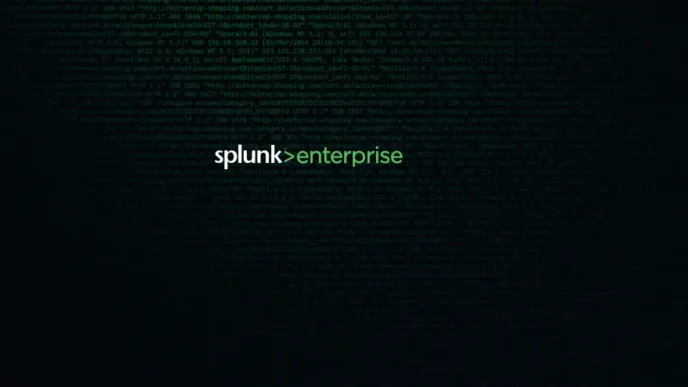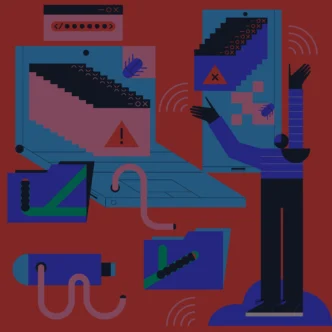As cyber threats rise and regulations tighten, organizations need more than just strong security systems — they need legal experts who understand the risks, the law, and how to bridge the gap between compliance and cybersecurity. The Cybersecurity Legal Counsel is a critical role ensuring that organizations protect sensitive data, respond legally to breaches, and operate within complex regulatory environments.
These professionals are no longer back-office legal advisors; they’re embedded in cybersecurity programs, helping shape digital strategy, contract terms, incident responses, and cross-border data practices.
Job Description: What Does a Cybersecurity Legal Counsel Do?
A Cybersecurity Legal Counsel specializes in laws related to information security, privacy, and digital risk. They work closely with technical teams, privacy officers, and senior leadership to ensure legal and regulatory compliance across all aspects of cybersecurity operations.
Core Responsibilities:
- Interpret and apply laws and regulations (e.g., GDPR, NIS2, HIPAA, CCPA) affecting cybersecurity and privacy.
- Draft and review contracts with clauses on cybersecurity, data protection, and liability.
- Provide legal guidance during security incidents, including breach notification and regulatory reporting.
- Conduct legal risk assessments related to IT systems, vendors, and cloud services.
- Align internal policies and training programs with current privacy and cybersecurity regulations.
- Monitor legal developments and advise on policy or process changes.
Education Requirements
To become a Cybersecurity Legal Counsel, you typically need a strong legal background and additional specialization in privacy, cybersecurity, or digital law.
Common Educational Pathways:
| Degree | Typical Focus Areas |
|---|---|
| Juris Doctor (J.D.) or Master of Laws (LL.M) | Corporate law, compliance, digital regulation |
| Specialized degree in Cybersecurity Law or Privacy Law | Data protection, cybercrime, digital regulation |
| Dual degree (Law + Computer Science or Cybersecurity) | Increasingly valuable for hybrid legal-tech roles |
| Postgraduate legal certifications | Privacy law, risk management, international regulations |
Understanding cybersecurity concepts — even at a basic level — is essential for success, especially in advisory and incident response contexts.
Key Certifications for Cybersecurity Legal Counsel
| Certification | Issuer | Difficulty | Renewal |
|---|---|---|---|
| Certified Information Privacy Professional (CIPP/E, CIPP/US) | IAPP | Moderate | Every 2 years |
| Certified Information Privacy Manager (CIPM) | IAPP | Moderate | Every 2 years |
| Certified Information Systems Security Professional (CISSP) – Legal & Compliance Domain | ISC² | Advanced | Annual (CPEs) |
| Certified Data Protection Officer (CDPO) | Various (AFNOR, PECB, etc.) | Moderate | Varies |
| Cybersecurity Law and Policy Certificate | Harvard, Stanford, etc. | Beginner–Moderate | Optional |
Essential Skills: Legal and Technical Expertise
Legal Expertise:
- Strong understanding of global cybersecurity and privacy laws.
- Experience with regulatory frameworks like GDPR, NIS2, HIPAA, and CCPA.
- Contract negotiation and legal risk management related to digital operations.
Cybersecurity Awareness:
- Basic knowledge of how data flows, how breaches occur, and how incident response works.
- Familiarity with technical terms such as encryption, third-party risk, and authentication.
Soft Skills:
- Ability to explain legal risks to technical teams and vice versa.
- Confidence in high-pressure environments like breach response scenarios.
- Strong communication, writing, and negotiation skills.
- Strategic thinking and alignment with business risk priorities.
Career Path: Progression in Cybersecurity Law
| Career Stage | Typical Roles |
|---|---|
| Entry-Level | Legal Analyst, Privacy Coordinator, Compliance Assistant |
| Mid-Level | Cybersecurity Legal Counsel, Privacy Counsel, Compliance Advisor |
| Senior-Level | Senior Counsel – Cybersecurity, Global Data Privacy Lead, Director of Legal Risk |
| Executive-Level | General Counsel (Security/Privacy), Chief Privacy Officer, VP Legal – Cybersecurity |
Many professionals enter the field from general legal practice, data privacy, or compliance roles, and specialize further through certifications and experience.
Where You’ll Work: Industries Hiring Cybersecurity Legal Counsel
Cybersecurity Legal Counsel roles exist across a range of sectors, including:
- Technology and SaaS companies – Digital platforms and cloud services.
- Financial services and fintech – Highly regulated environments with strict risk controls.
- Healthcare and pharmaceuticals – Sensitive personal data and health records.
- Consulting and law firms – Advising clients on cyber law, contracts, and incident response.
- Government and critical infrastructure – Policy implementation and risk oversight.
- Multinational corporations – Managing global privacy and cybersecurity compliance.
Getting Started: How to Enter the Field
Here’s a step-by-step overview for entering this field:
- Earn a law degree (J.D., LL.M., or equivalent).
- Specialize in privacy, digital law, or cybersecurity through coursework or certification.
- Gain experience in legal roles dealing with contracts, compliance, or data protection.
- Earn key certifications such as CIPP/E or CIPM from IAPP.
- Build cybersecurity fluency — attend industry conferences, follow emerging laws, and understand core IT risk principles.
- Target roles at companies with strong data and regulatory footprints (e.g., tech, finance, healthcare).
- Network with professionals in both legal and cybersecurity circles.
Common Challenges in the Role
- Keeping up with legal changes: New privacy and cybersecurity laws emerge constantly across jurisdictions.
- Explaining legal risk to non-lawyers: Communication must be adapted for technical or executive teams.
- Handling data breaches: Legal counsel must act quickly and precisely under regulatory pressure.
- Managing vendor and third-party risk: Legal reviews are often time-sensitive and technically complex.
- Navigating global operations: Different countries mean different laws, especially for data transfers.
Global Salary Benchmarks (2025 Estimates)
| Country | Entry-Level | Mid-Level | Senior-Level |
|---|---|---|---|
| USA | $75,000 – $95,000 | $100,000 – $140,000 | $150,000 – $200,000+ |
| UK | £40,000 – £55,000 | £60,000 – £85,000 | £90,000 – £130,000+ |
| Switzerland | CHF 85,000 – CHF 110,000 | CHF 120,000 – CHF 160,000 | CHF 170,000 – CHF 220,000 |
| France | €40,000 – €55,000 | €60,000 – €80,000 | €90,000 – €120,000+ |
| Australia | AU$85,000 – AU$110,000 | AU$120,000 – AU$150,000 | AU$160,000 – AU$200,000+ |
Note: Salaries depend on location, industry, years of experience, and company size.
Job Market Trends and Outlook
Demand for Cybersecurity Legal Counsel has grown steadily in recent years due to increasing regulation and cyber risk. Key trends include:
- Expanding regulation: Laws like NIS2, GDPR, CCPA, and others are driving legal hiring.
- Rising breach frequency: More cyber incidents mean greater legal involvement in incident response and liability.
- Growing global data flows: Cross-border regulation increases demand for legally skilled compliance professionals.
- Interdisciplinary hiring: Companies seek legal professionals who understand technical risk and regulatory nuance.
LinkedIn and Indeed show over 20% year-over-year growth in legal jobs with a cybersecurity or privacy focus across North America and Europe.
FAQs
Do I need a cybersecurity degree to qualify?
No, but understanding cybersecurity basics is essential. Law is the core skillset.
Can I work in this role remotely?
Yes. Many positions offer hybrid or fully remote work, especially in tech and legal firms.
Which certifications are most valuable?
Start with CIPP/E or CIPM for privacy law. Consider CISSP if you’re moving into technical advisory.
Do I need international law experience?
Yes, if you’re working for global companies or across multiple jurisdictions.
Can I transition from general legal roles?
Absolutely. Many cybersecurity legal professionals start in general practice and specialize through certifications and experience.
Conclusion: Why Cybersecurity Legal Counsel Is a Career That Matters
As organizations face increasing legal exposure from cyberattacks, data breaches, and evolving international regulations, the role of Cybersecurity Legal Counsel has never been more critical. This position sits at the intersection of law, technology, and risk — offering both strategic influence and long-term career stability.
Whether you’re a legal professional seeking to specialize, or a cybersecurity expert interested in compliance and governance, this path offers the opportunity to shape digital policy, protect organizations, and contribute meaningfully to the integrity of modern information systems.
With the right education, certifications, and practical experience, Cybersecurity Legal Counsel is not just a job — it’s a vital, high-impact career in the digital age.














